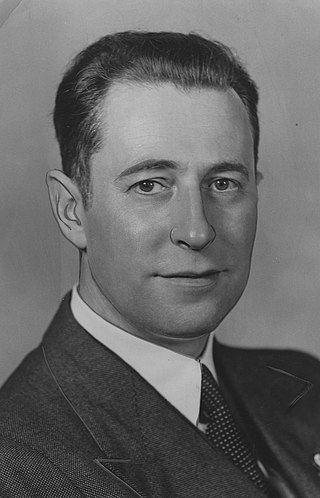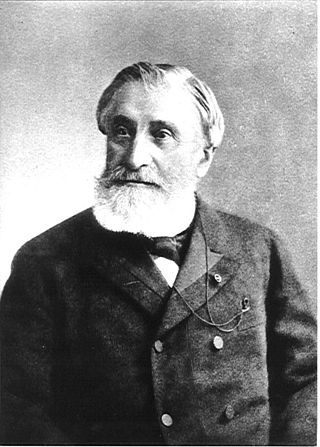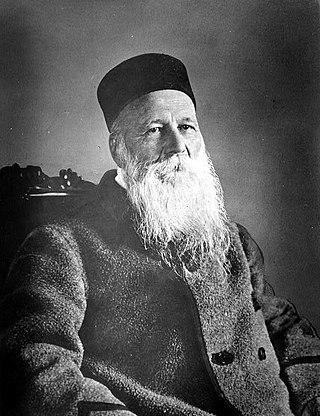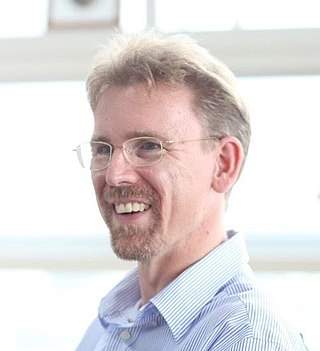Related Research Articles

The organized International Red Cross and Red Crescent Movement is a humanitarian movement with approximately 16 million volunteers, members, and staff worldwide. It was founded to protect human life and health, to ensure respect for all human beings, and to prevent and alleviate human suffering. Within it there are three distinct organisations that are legally independent from each other, but are united within the movement through common basic principles, objectives, symbols, statutes, and governing organisations.

Henry Dunant, also known as Henri Dunant, was a Swiss humanitarian, businessman, social activist and the co-founder of Red Cross movement. His humanitarian efforts won him the first Nobel Peace Prize in 1901.

Julius Streicher was a member of the Nazi Party, the Gauleiter of Franconia and a member of the Reichstag, the national legislature. He was the founder and publisher of the virulently antisemitic newspaper Der Stürmer, which became a central element of the Nazi propaganda machine. The publishing firm was financially very successful and made Streicher a multi-millionaire.

August Franz Anton Hans Fritzsche was the Ministerialdirektor at the Propagandaministerium of Nazi Germany. He was the preeminent German broadcaster of his time, as part of efforts to present a more popular and entertaining side of the Nazi regime, and his voice was recognised by the majority of Germans.

Humanitarianism is an active belief in the value of human life, whereby humans practice benevolent treatment and provide assistance to other humans to reduce suffering and improve the conditions of humanity for moral, altruistic, and emotional reasons. One aspect involves voluntary emergency aid overlapping with human rights advocacy, actions taken by governments, development assistance, and domestic philanthropy. Other critical issues include correlation with religious beliefs, motivation of aid between altruism and social control, market affinity, imperialism and neo-colonialism, gender and class relations, and humanitarian agencies. A practitioner is known as a humanitarian.

The First Geneva Convention for the Amelioration of the Condition of the Wounded in Armies in the Field, held on 22 August 1864, is the first of four treaties of the Geneva Conventions. It defines "the basis on which rest the rules of international law for the protection of the victims of armed conflicts."

Radio Télévision Libre des Mille Collines (RTLM) was a Rwandan radio station which broadcast from July 8, 1993, to July 31, 1994. It played a significant role in inciting the Rwandan genocide that took place from April to July 1994, and has been described by some scholars as having been a de facto arm of the Hutu government.

Gustave Moynier was a Swiss jurist who was active in many charitable organizations in Geneva.
Volksverhetzung, in English "incitement to hatred", "incitement of popular hatred", "incitement of the masses", or "instigation of the people", is a concept in German criminal law that refers to incitement to hatred against segments of the population and refers to calls for violent or arbitrary measures against them, including assaults against the human dignity of others by insulting, maliciously maligning, or defaming segments of the population.

The International Committee of the Red Cross is a humanitarian organization based in Geneva, Switzerland, and is a three-time Nobel Prize Laureate. State parties (signatories) to the Geneva Convention of 1949 and its Additional Protocols of 1977 and 2005 have given the ICRC a mandate to protect victims of international and internal armed conflicts. Such victims include war wounded persons, prisoners, refugees, civilians, and other non-combatants.

The chestnut short-tailed bat is a bat species from South and Central America. The species is often confused with the Benkeith's short-tailed bat. It is a mainly frugivorous species that has been known to consume insects. To determine which pipers to forage on, it focuses on odour and then after proceeds to echolocate to determine position. It hunts between nightfall and midnight. Habitats include hollow trees, caves, cracks, abandoned mines, sewers, and house roofs. It does not decrease activity during full moons, only instances of turbulent weather like heavy rain. In an agricultural setting it has a higher resistance to habitat fragmentation compared to similar bat species.

Rony Brauman is a French physician specializing in tropical diseases and a former president of Médecins sans frontières

The Henry Dunant Medal is the highest award of the Red Cross Movement. It is named after Henry Dunant, the founder of the Red Cross Movement. The medal is presented every two years by the Standing Commission of the Red Cross and Red Crescent. This body represents the International Committee of the Red Cross, the International Federation of Red Cross and Red Crescent Societies and the various National Red Cross and Red Crescent Societies.

The Geneva Conventions are international humanitarian laws consisting of four treaties and three additional protocols that establish international legal standards for humanitarian treatment in war. The singular term Geneva Convention usually denotes the agreements of 1949, negotiated in the aftermath of the Second World War (1939–1945), which updated the terms of the two 1929 treaties and added two new conventions. The Geneva Conventions extensively define the basic rights of wartime prisoners, civilians and military personnel; establish protections for the wounded and sick; and provide protections for the civilians in and around a war-zone.
Satya Paul Agarwal is an Indian neurosurgeon, academician, and public health administrator. He is the incumbent Secretary General of the Indian Red Cross Society. The Government of India honoured him in 2010, with the Padma Bhushan, the third highest civilian award, for his services to the fields of medicine and public health.
Richard Ashby Wilson is an American–British social anthropologist of law and human rights. He is the Gladstein Distinguished professor of Human Rights and Professor of Anthropology and Law at the University of Connecticut. In 2021, Wilson became the Associate Dean of Faculty Development and Intellectual Life at the University of Connecticut School of Law. Wilson established the interdisciplinary Human Rights Institute at the University of Connecticut and was the Director of the Human Rights Institute from 2003 to 2013. Wilson is one of the founders of the anthropology of human rights and was editor and an author of Human Rights, Culture and Context (1997), the first edited volume in the field of the anthropology of human rights.

Axel Timmermann is a German climate physicist and oceanographer with an interest in climate dynamics, human migration, dynamical systems' analysis, ice-sheet modeling and sea level. He served a co-author of the IPCC Third Assessment Report and a lead author of IPCC Fifth Assessment Report. His research has been cited over 18,000 times and has an h-index of 70 and i10-index of 161. In 2017, he became a Distinguished Professor at Pusan National University and the founding Director of the Institute for Basic Science Center for Climate Physics. In December 2018, the Center began to utilize a 1.43-petaflop Cray XC50 supercomputer, named Aleph, for climate physics research.

Incitement to genocide is a crime under international law which prohibits inciting (encouraging) the commission of genocide. An extreme form of hate speech, incitement to genocide is an inchoate offense and is theoretically subject to prosecution even if genocide does not occur, although charges have never been brought in an international court without mass violence having occurred. "Direct and public incitement to commit genocide" was forbidden by the Genocide Convention in 1948. Incitement to genocide is often cloaked in metaphor and euphemism and may take many forms beyond direct advocacy, including dehumanization and accusation in a mirror.
Gregory S. Gordon is an American scholar of international law and a former genocide prosecutor during the Media Case at the International Criminal Tribunal for Rwanda. Gordon is known for his advocacy of the criminalization under international law of a broader category of speech likely to cause mass atrocities, and his book Atrocity Speech Law in which he advances this argument.
This is a select annotated bibliography of scholarly English language books and journal articles about the subject of genocide studies; for bibliographies of genocidal acts or events, please see the See also section for individual articles. A brief selection of English translations of primary sources is included for items related to the development of genocide studies. Book entries may have references to journal articles and reviews as annotations. Additional bibliographies can be found in many of the book-length works listed below; see Further Reading for several book and chapter-length bibliographies. The External links section contains entries for publicly available materials on the development of genocide studies.
References
- ↑ "Recipients-Research: Wibke Timmermann - Fondation Prix Henry Dunant". Foundation Prix Henry Dunant. Retrieved 24 January 2024.
- ↑ Anderson, Kjell (24 April 2015). "Wibke K. Timmermann, Incitement in International Law, London, Routledge, 2014, 287pp., ISBN 9781138020801, £85.00". Leiden Journal of International Law. 28 (2): 381–384. doi:10.1017/S0922156515000138.
- ↑ Dojčinović, Predrag (March 2016). "Wibke K. Timmermann,". Journal of International Criminal Justice. 14 (1): 219–225. doi:10.1093/jicj/mqw004.